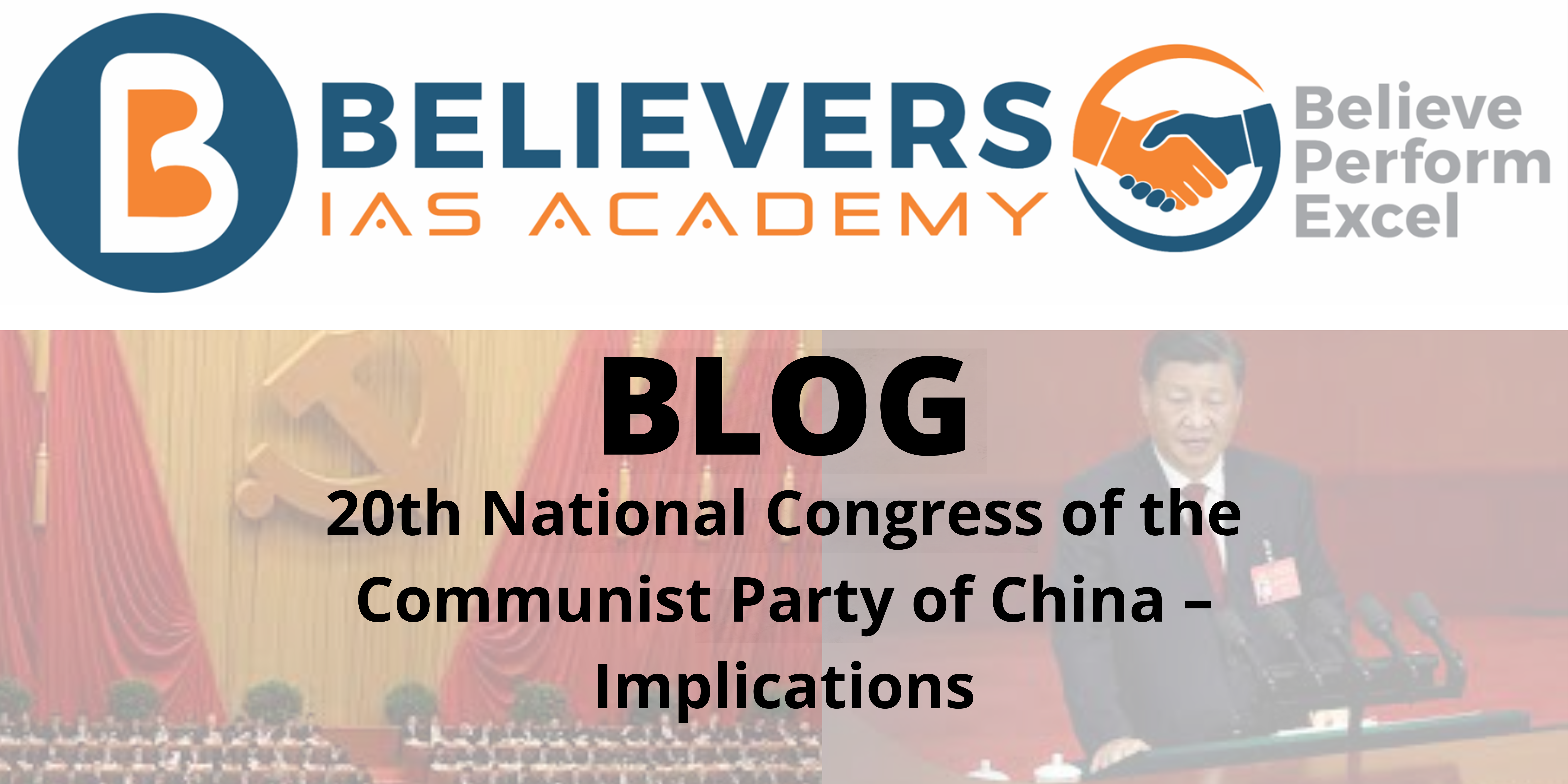20th National Congress of the Communist Party of China – Implications
Context:
- The 20th Congress of the Communist Party of China which took place recently has confirmed Xi Jinping’s overwhelming control over his Party and his country.
Adding More Powers to the President:
- The CPC’s 20th Congress highlighted General Secretary Xi Jinping’s role as the source of fresh concepts and interpretations of Marxism within the Party, in addition to serving as the Central Committee’s nucleus.
- China’s internal issues, or more precisely, the obstacles the Party sees to its continuing existence in power, are a clear emphasis of both the Report to the Congress and the resolution on modifications to the Party constitution.
- In order to win “the Chinese Dream of national rejuvenation,” Party cadre must “learn the history of the Party,” “remember its revolutionary ethos,” carry forward the battle spirit and build up combat ability and strive in unity, this was mentioned the communist party’s congress.
Xi’s Influence over the party:
- Since Deng Xiaoping, Xi Jinping has established himself as the most powerful Chinese leader thanks to the 20th Congress.
- His loyalists are crammed into the Politburo and its Standing Committee.
- Not only has he disregarded age-related conventions regarding his own and a number of his allies’ retirement from the Central Committee, but he has also disregarded them in regards to the retention of rivals who had not yet reached retirement age.
Comparison with Deng Xiaoping
- When compared to the difficulties Deng or Mao Zedong experienced, those of Xi are completely different.
- Long-standing structural problems, the effect of the Party’s zero-Covid strategy, pressure from the trade war with the United States and other events in the international environment have all contributed to the Chinese economy’s current state of stagnation.
- But it also isn’t the fragile economy of Mao’s or the one that was only just getting going under Deng.
- China can no longer operate covertly, as it did under Deng, as the second-largest economy in the world, a key political player on the international stage, and a considerable military power.
Implications on its Foreign Policies:
- China’s strong foreign policy is expected to continue.
- Even though he is older than the customary retirement age, the aggressive foreign minister Wang Yi has managed to maintain a position inside the Central Committee.
- Though they are likely to continue using their “wolf warrior” tactics and seek to extend China’s extra-territorial jurisdiction over Chinese expats, dissidents, the Taiwanese, and the diaspora, diplomacy may not be the best word to describe the activities of Chinese foreign policy initiatives.
Source The Indian Express
For more updates, Click Here




